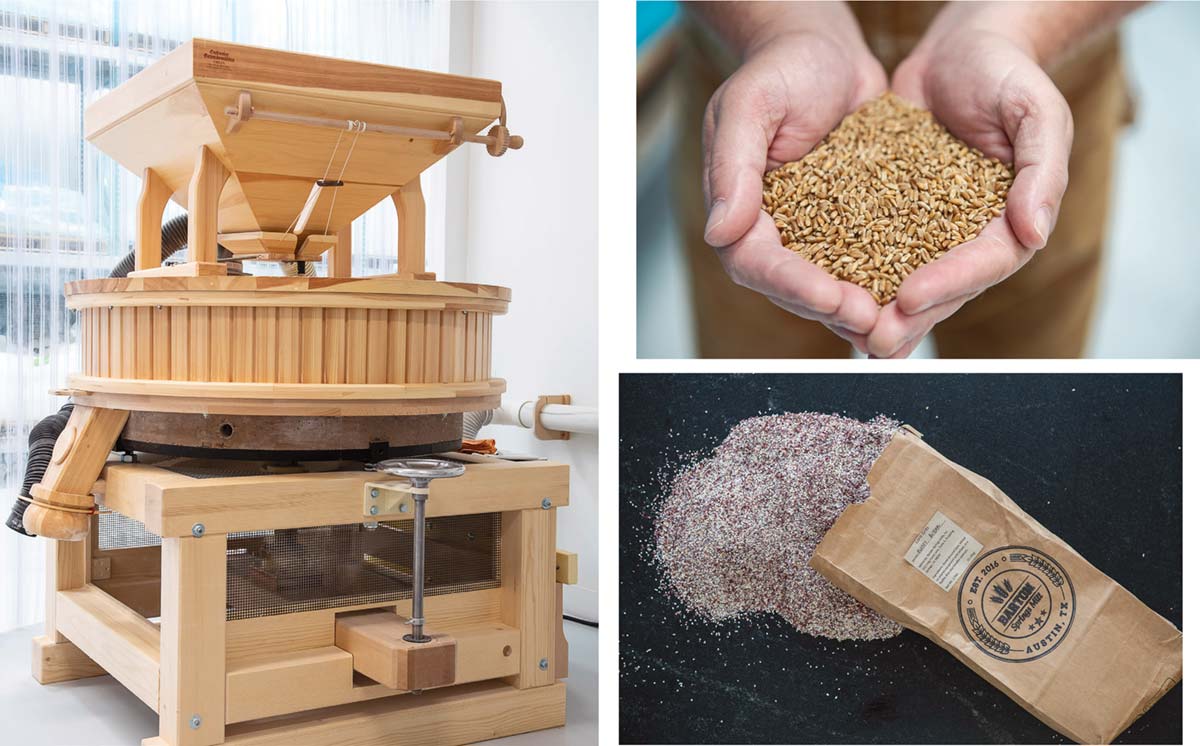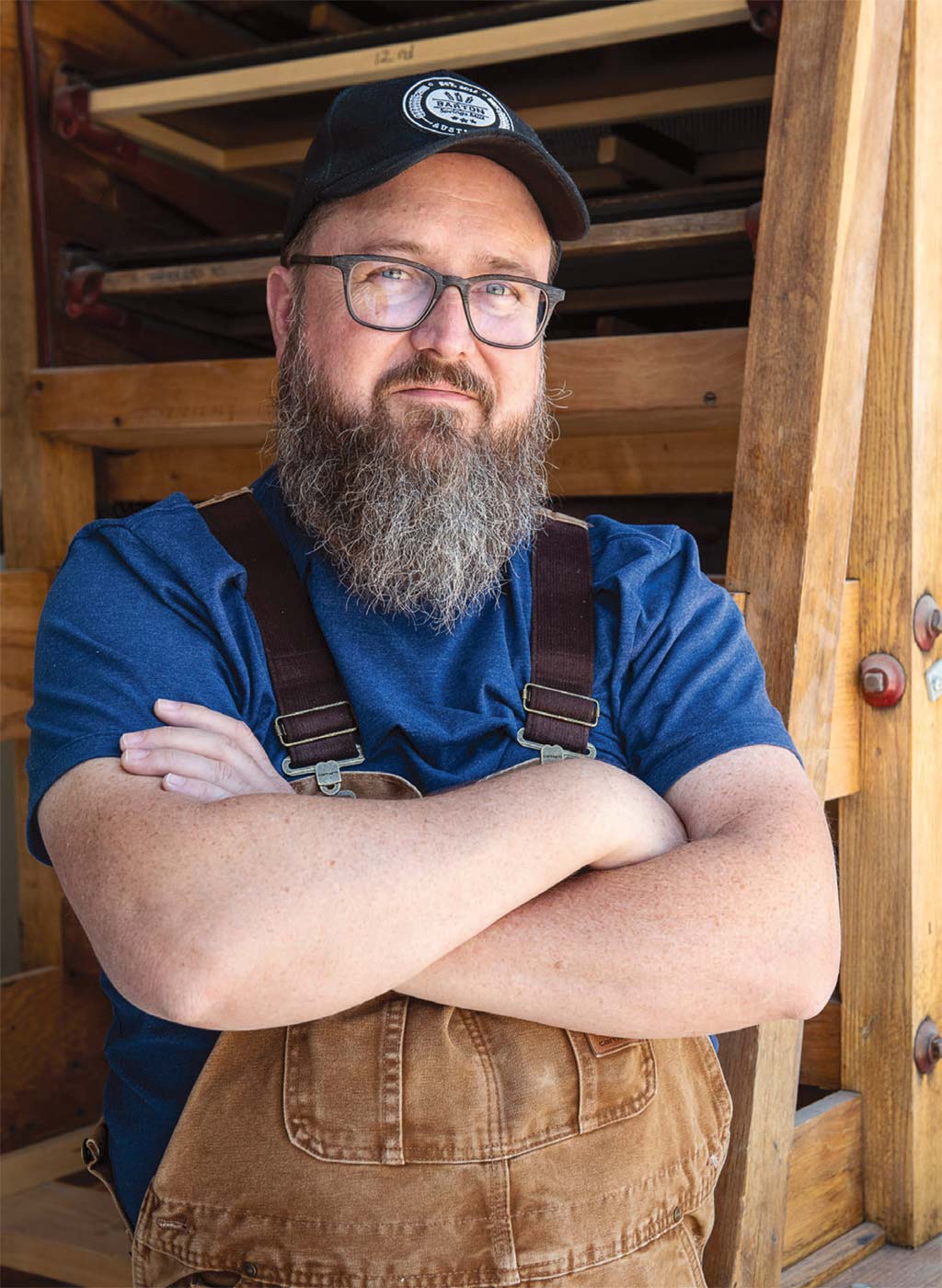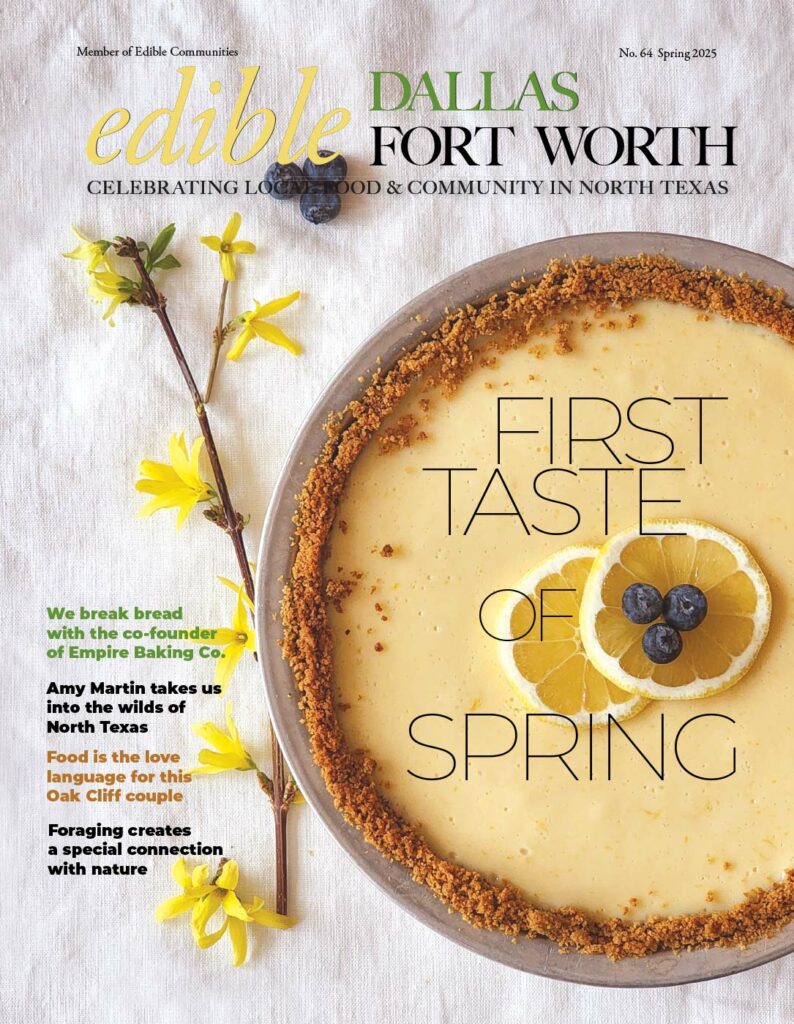
For a staple as old as early human societies, wheat has had a rough go this century. First it was calories, then it was carbs. These days, it’s the mysterious, invisible, nominally understood gluten. But as a pastry chef, baker and wheat peddler, I’ve spent the last decade defending wheat’s rapidly tanking reputation. We now know there’s a big difference between industrialized, high-production, heavily processed wheat, and organic, heirloom or landrace, minimally processed wheat—both in quality and nutrition. Demand for this superior wheat and other heritage grains has been growing, but finding a local source has been a challenge.
James A. Brown knows this all too well. He started Barton Springs Mill in 2016, after his desire to make a tasty loaf of bread spiraled into a full-on quest for organic wheat responsibly grown, minimally processed and available fresh. Since he couldn’t find such a source, he built one. His mill currently offers heirloom and landrace grains that are stone-milled onsite in Dripping Springs.
Unlike the complex roller-milling process that creates the white flour we buy from the store, stone-milling is a simpler process that retains all the wheat’s natural vitamins, minerals, fiber and fatty acids. (Without all those volatile but nourishing elements, commercial flour “performs” better and has a longer shelf life, so they’re edited out as part of the refinement process.)

Brown has also partnered with farmers all over the western U.S. to grow the specific heritage varieties that stock the mill. Unlike modern grains cultivated for disease resistance and high yield, heritage and landrace grains grow without aggressive fertilizers or pesticides. They have a historical presence here dating back to before industrialization changed the agricultural makeup—and their return is a win for all of us. Many of my gluten-sensitive customers and baking students report an ability to enjoy these heirloom varieties without difficulty. Not to mention the wheat’s surprising complexity of flavors—it’s a new thrill for me to bake bread that actually tastes like its ingredients: grassy, earthy, spicy, nutty.
The mill boasts a growing list of organic wheats, ryes, corns and buckwheat, and Brown and his team mill them fresh every week. They offer a spectrum of grinds and winnows so that you can find just the right product for your project, and a wealth of advice if you feel overwhelmed by the range of options.
Here are a few introductory recipes for incorporating these wholesome flours into your baking routine. Though I’ve been baking professionally for years, working with fresh-milled flours is a learning process for me. They behave a little differently than store-bought flour, but the flavors, textures and nutritional boost are well worth a crash course. For your own experimentation, a good general rule is to start by replacing no more than 50 percent of the flour in any recipe with a whole-wheat or whole-grain alternative, and then inch up from there as you get to know the ingredients. Happy baking!
- Currently in DFW, you can taste Barton Springs Mill flours at Commissary and Empire Baking Co. and find the flours at Mockingbird Food Co., Market Provisions or order online at bartonspringsmill.com.
RECIPES
Corn Spoon Bread
Recipe by Abby Love
Barton Springs Mill has several colorful varieties of cornmeal that make for a dramatic dish. Bloody Butcher and Green Oaxacan are my favorites.
Peach-Crisp Pie
Recipe by Abby Love, Photography by Casey Woods
I have worked with Barton Springs Mill flours to develop a multi-duty, all-purpose flour. It requires the mixture of two different types of wheat: hard-red and soft-white. Barton Springs Mill offers many types of hard-red wheat—Rouge de Bordeaux, Marquis, Red Fife, Turkey Red and TAM 105—all will do here. There is only one soft-white wheat, Sonora, and it’s a beaut. Both should be used in their ‘00’ form, which is to say, the form in which as much of the bran has been sifted out as possible. If you’d like, you can simply use all of one type of flour. It will still come out beautifully.
Einkorn Tortillas
Recipe by Abby Love, Photography by Casey Woods
Einkorn flour is a favorite of mine. It’s one of the oldest grains on the planet and has a delicious nutty flavor. Its gluten properties are far more delicate than other modern wheats, making it work best in flat applications, like tortillas or pita bread.
Simple Rye Loaf
Recipe by Abby Love, Photography by Casey Woods
This is a straightforward yeast loaf that will produce rye bread in a couple of hours. Using half all-purpose or bread flour will result in a proper rise, but you may substitute in any Barton Springs Mill hard-red wheat flour, if you wish. The loaf will be squatter and denser.
- Abby Lovehttps://www.edibledfw.com/author/abbylove/
- Abby Lovehttps://www.edibledfw.com/author/abbylove/
- Abby Lovehttps://www.edibledfw.com/author/abbylove/
- Abby Lovehttps://www.edibledfw.com/author/abbylove/









